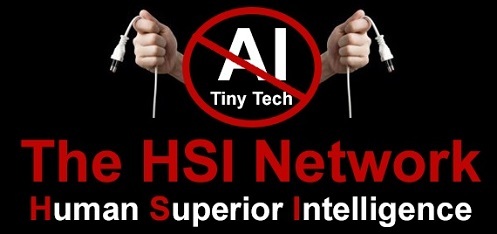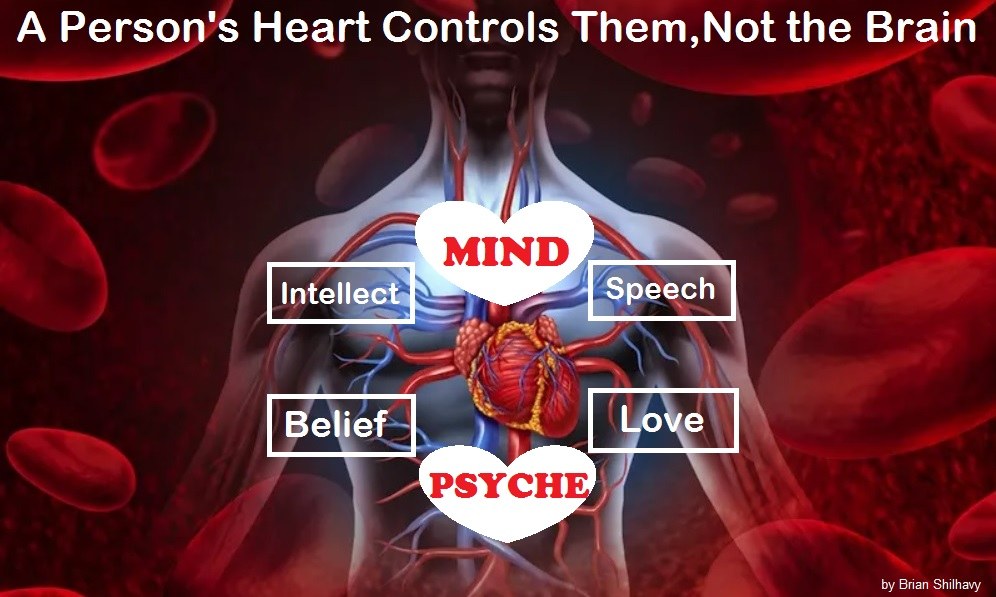
by Brian Shilhavy
Editor, Health Impact News
I have been writing since the fourth quarter of 2022 that digital technology, which began in the early 1980s with the introduction of “personal computers”, has reached its peak, and would eventually begin to decline into what I called a “Post-Technological Age.”
This doesn’t mean that the technology will go away, just that we will finally realize that there are limits to electronic technology, which will collapse our economy due to our over-spending and overuse of it. Eventually people will figure out that most of the modern claims for the technology, and especially transhumanism, are just lies fed to the public to keep the money flowing.
And in early 2023, many of the Big Tech banks, like Silicon Valley Bank, did fail. But the entire system has not collapsed yet, because of the massive amounts of cash they have held, much of it pumped into the economy during Trump’s first term during COVID, and the Cares Act [1].
But with the recent investments into data centers which are so vast that many projects are now actually being funded by debt, the day the whole system collapses is drawing closer.
However, there is now another threat to Big Tech’s vision for the future, and that threat is coming from the younger generations, the Millennials and the Gen Z generations, who are now starting to abandon the technology in increasing numbers, to find true value in life.
As I have been writing for years, Big Tech can NOT control you if you don’t use their products.
Investors on Wall Street are starting to wake up to this fact regarding the younger generations, especially Gen Z, regarding new movements to “unplug.”
This editorial was published on the Wall Street publication MarketWatch [2] this week.
Gen Z is shutting off their screens — how this ‘great unplugging’ will charge your portfolio
Excerpts:
I’ve been around long enough to know that investment advice based on generational trends is like dating advice from a divorce lawyer — technically informed, but probably not what you want to hear. And yet here I am, about to tell you that young people might be on to something.
The thesis is simple: Americans, particularly the ones who grew up with smartphones surgically attached to their hands, are walking away from screens and rediscovering the physical world. Books. Churches. Other human beings. In person.
It’s like watching someone discover fire, except fire has been there the whole time and they’ve just stopped staring at TikTok long enough to notice.
For example, church attendance among young British men jumped to 21% in 2024 from 4% in 2018, according to the U.K.’s Religion Media Centre.
The American Booksellers Association reports its membership at 2,433 stores — nearly double the number in 2016, with 323 new independent bookstores opening in 2024 alone.
Participation in running clubs has increased 25% over five years, per Running USA, with the strongest growth among adults ages 20 to 29.
But here’s where it gets interesting: A Harris Poll found that 77% of Americans would choose a completely in-person social life over a digital alternative, while 81% of Gen Z respondents wish disconnecting from devices were easier. Book-club event listings jumped 31% in 2024, following a 24% rise in 2023, according to Eventbrite.
The portfolio implications become clearer when viewed alongside troubling evidence about the effects of digital life — the kind that makes even Mark Zuckerberg’s lawyers nervous.
Meta’s internal research documented that Instagram worsens teen girls’ body image, contributing to anxiety and depression.
Federal courts have ruled that TikTok must face trial over allegations of manipulating minors toward self-harm. When you’re in court defending accusations that your app encourages teenagers to hurt themselves, your business model might need a rethink.
But here’s the kicker: Organization for Economic Cooperation and Development data show that average cognitive processing ability peaked in the early 2010s — precisely when smartphones achieved ubiquity — and has declined since then.
OpenAI’s Sam Altman recently observed that Silicon Valley lacks prominent entrepreneurs under 30 for the first time since the 1970s. When the guy building artificial intelligence notices the next generation’s actual intelligence is missing in action, that’s what we call a clue.
Young people are looking for meaning in activities instead of apps. The Reformation took centuries. The digital Counter-Reformation might take a decade. (Full article [2].)
Charlie Garcia of MarketWatch is not the only one to write about this trend among young Americans to unplug.
Here are a couple of other articles publishing similar trends, for example.
These college kids are swearing off smartphones. It’s sparking a movement
Excerpts:
There was no way around it: Charlie Fisher was addicted to his smartphone. He scrolled on TikTok and Instagram first thing in the morning, picked it up to answer text messages between classes and relied on it as a crutch in social settings. It was a “never ending pattern.”
“It just basically created this pattern where I was anxious, and so I’d open my smartphone, and then I would hate myself for opening my smartphone, which made me more anxious,” Fisher says.
If you told him a few years ago that he wouldn’t be living with a smartphone, he would’ve been shocked, but the 20-year-old says his life is better because of it. He’s part of a movement of college students who are trading in their smartphones for what’s now considered trendy hardware: flip phones.
Growing up in a ‘social wasteland’
Fisher grew up playing with basketballs and nerf guns around his cul-de-sac with a group of neighborhood kids. But when they all downloaded Snapchat, it changed the way they interacted – they no longer had to knock on each other’s doors to ask to play and hangouts started to involve screens.
By the time he entered high school, everyone in his classroom had a phone.
He’s not alone. Nearly half of teens say they’re online constantly, according to 2024 data from the Pew Research Center. And 48% of teens aged 13 to 17 say social media has a negative effect on kids their age.
“It got to the point where I didn’t even know what being present was,” Fisher says. “Someone said flip phone. I was like, ‘Wait, you can do that?'”
He bought a $20 Nokia flip phone from Walmart with a $6 per month plan. For a year, he waffled between his smartphone and the flip phone until he pulled the trigger and fully ditched his smartphone in March.
Seán Killingsworth, 22, had long noticed that his peers’ interactions were impacted by the smartphones in their pockets. He coined the term a “social wasteland” to describe the “zombies” around him who were unavailable for social connection.
He got a flip phone his sophomore year of high school. Whenever a new friend asked for his Snapchat, the conversation would quickly come to an awkward halt after he explained he had a flip phone. When he tried to call people – texting on his flip phone’s keyboard was tedious – it was anxiety inducing or off-putting for his peers, who often stopped reaching out.
“I ran into a lot of barriers just trying to make a friend because of the mode of communication I’d chosen to use,” Killingsworth says.
When he enrolled in school at the University of Central Florida, he wanted things to be different, and started hosting casual get togethers with friends without phones. Eventually, the idea turned into the Reconnect Movement [3], which has clubs at Rollins College, the University of Florida and the University of Central Florida. Another chapter is on tap to launch at Simpson College in Iowa this fall.
The events involve activities like painting, playing outdoor sports or hosting lighthearted “goofy debates” where students argue over topics like mountains vs. the beach. Many times, though, the event at hand morphs into an afternoon where everyone just hangs out. (Full article [4].)
THE DIGITAL DETOX: WHY MORE YOUNG PEOPLE ARE CHOOSING THE OUTDOORS OVER SCREENS
Excerpts:
ARE YOUNG PEOPLE REALLY DETOXING FROM TECHNOLOGY?
In a world where technology is everywhere, young people are starting to push back. Gen Z and Millennials have grown up surrounded by screens, but now many are choosing to step away. Digital detoxing – the act of cutting back on technology use, is becoming a movement with more young people spending time outdoors, unplugging from their devices, and reconnecting with nature.
HOW MUCH SCREEN TIME ARE WE REALLY USING?
The average screen time for young people has skyrocketed in the past decade. Studies show that:
- Teens spend an average of 7-9 hours per day on screens, including social media, gaming, and streaming (Common Sense Media, 2023).
- Children aged 8-12 spend about 5 hours daily on screens (Common Sense Media, 2023).
- 60% of young people say they feel addicted to their phones (Pew Research, 2023).
- A 2024 survey found that 95% of U.S. teenagers have access to smartphones, with 97% going online daily and 48% reporting being online “almost constantly”
With so much time spent online, the negative effects are becoming clearer: increased anxiety, depression, poor sleep, and lack of real-world social interactions. This has led many young people to look for healthier alternatives – and the outdoors is their answer.
THE RISE OF OUTDOOR ACTIVITIES AMONG YOUTH
Instead of scrolling through social media for hours, many young people are finding new ways to spend their time. The outdoor industry is seeing a massive increase in youth participation in activities such as:
Digital Detox Trends:
- In 2024, searches for “digital detox” more than tripled compared to 2023, indicating a growing interest among individuals, including young people, in reducing screen time.
- Hiking and Camping – National parks have reported a 15% increase in youth visitors in the last five years (National Park Service, 2023).
- Surfing, Kayaking, and Water Sports – Outdoor water activities have grown by 20% among young people since 2020 (Outdoor Industry Association, 2023).
- Cycling and Running – Bike sales increased 45% in 2020 and continue to be popular among Gen Z (Bicycle Retailer, 2023).
THE SCIENCE BEHIND NATURE AND WELL-BEING
Nature isn’t just fun – it has proven mental and physical health benefits:
- Spending just 20 minutes outside can lower stress levels by 16% (University of Michigan, 2023).
- Young people who spend time outdoors report feeling 30% happier than those who don’t (Nature & Mental Health Study, 2023).
- Regular outdoor activity improves sleep quality by 50% (Sleep Foundation, 2023).
Full Article [5].
The Latest Millennial Staple to Become Uncool? Being Online
Excerpts:
A string of viral social media posts—ironically, online—have made one thing clear: spending heaps of time on the internet, once the great escape of a generation, is no longer cool.
Oxford University Press hinted at a shift when it named “brain rot” its 2024 Word of the Year. The term, which describes the cognitive decay caused by excessive doomscrolling and online saturation, captures the growing disillusionment with social media felt among younger millennials and Gen Z.
For many, the ultimate social currency no longer appears to be how many followers you have, but how few social media platforms you use and if they are on private mode. More young people are deleting their accounts, adopting old-school flip phones, picking up analog hobbies and embracing digital minimalism. Film cameras, paperback books and even “dumbphones”—simpler mobile devices without addictive social features—are making a comeback.
Once seen as outdated, being offline is now perceived as a luxury in a world where everyone is perpetually plugged in. (Full article [6].)
This is a Non-Partisan Issue that Everyone Should Embrace to Stop the Big Tech Attempt to Imprison Us
Whitney Webb, herself a Millennial who is now raising her own children, was recently interviewed by the Right-Wing Zionist Mormon Glenn Beck, who has been quoted as saying that his purpose in life is to “serve Jews” [7], who obviously sees value in Whitney’s teaching about the dangers Big Tech.
Beck stated the typical right-wing fear-mongering attitude that Big Tech is going to transform all of us into transhumans and take over the world, and then asked Whitney what the solution was.
Listen to her answer which is much more astute and truthful than the undeserved fear that so many on the Right have of the technology today of taking over our lives, and reflects the attitudes of her generation that are growing, as the articles above demonstrate.
This is just a 2-minute clip from the longer interview:
Human Intelligence is Superior to Artificial (Fake) Intelligence
Human intelligence is always superior to artificial (fake) intelligence. First of all, only human intelligence can build the hardware and software which is dependent upon electricity needed to create AI, which then is dependent upon the Internet to distribute.
Human intelligence is not dependent upon either electricity or the Internet.
Humans are created in the image of God, and our energy source is blood, pumped through our heart. Human intelligence can be distributed without the Internet, and includes spiritual forms of communication.
When human intelligence is combined with the Spirit of God, it becomes Human Superior Intelligence, which I have named “The HSI Network. [8]”
If you become part of this network, you no longer need to fear the Technocrats, and it can be very releasing in your spirit and soul.
Here is a comment I received from a Health Impact News reader this week explaining how understanding the HSI network affected her:
Thank you for the article re:HSI, it was so profound and meaningful in regards to the weight it lifted from my heart and the subsequent shift of energy from my brain to my heart.
I feel my entire epicentre shifted and such unbelievable release from the conviction of those words that literally all my pain and suffering evaporated while I deeply wept and mourned as my heart is no longer jailed by my mind.
So many realizations passed through my heart in miliseconds that I truly feel free unemcumbered because this information was missing from my life.
Thank you for this message which is so rare from believers yet is entirely spoken from truth. Your writings continute to inspire reflection and refinement of the soul which enriches countless lives as we turn to His true message.
You are also a beacon of light uniting many and I wanted to share my experience, this article needs to be preached.
I agree. This needs to be preached. AI is worthless and we don’t need it.
We also do not need to fear AI, because it is easily put to death by pulling the plug from its power source.
Learn how powerful human intelligence is, which originates in our hearts, and is created by God.
Related:
Young Man Living on the Streets Finds Jesus of the Bible – Overcomes Drug and “Terminally Online” Addictions [9]
Comment on this article at HealthImpactNews.com [10].
This article was written by Human Superior Intelligence (HSI) [8]
[8]
See Also:
Understand the Times We are Currently Living Through
New FREE eBook! Restoring the Foundation of New Testament Faith in Jesus Christ – by Brian Shilhavy [13]
Who are God’s “Chosen People”? [14]
KABBALAH: The Anti-Christ Religion of Satan that Controls the World Today [15]
 [15]
[15]
Christian Teaching on Sex and Marriage vs. The Actual Biblical Teaching [16]
Exposing the Christian Zionism Cult [17]
The Bewitching of America with the Evil Eye and the Mark of the Beast [18]
Jesus Christ’s Opposition to the Jewish State: Lessons for Today [19]
Identifying the Luciferian Globalists Implementing the New World Order – Who are the “Jews”? [20]
The Brain Myth: Your Intellect and Thoughts Originate in Your Heart, Not Your Brain [21]
What is the Condition of Your Heart? The Superiority of the Human Heart over the Human Brain [22]
The Seal and Mark of God is Far More Important than the “Mark of the Beast” – Are You Prepared for What’s Coming? [23]
The Satanic Roots to Modern Medicine – The Image of the Beast? [24]
Medicine: Idolatry in the Twenty First Century – 10-Year-Old Article More Relevant Today than the Day it was Written [25]
 [26]
[26]
Having problems receiving our emails? See:
How to Beat Internet Censorship and Create Your Own Newsfeed [27]
We Are Now on Telegram [28]. Video channels at Bitchute [29], and Odysee [30].
If our website is seized and shut down, find us on Telegram [28], as well as Bitchute [29] and Odysee [30] for further instructions about where to find us.
If you use the TOR Onion browser [31], here are the links and corresponding URLs to use in the TOR browser [31] to find us on the Dark Web: Health Impact News [32], Vaccine Impact [33], Medical Kidnap [34], Created4Health [35], CoconutOil.com [36].
















